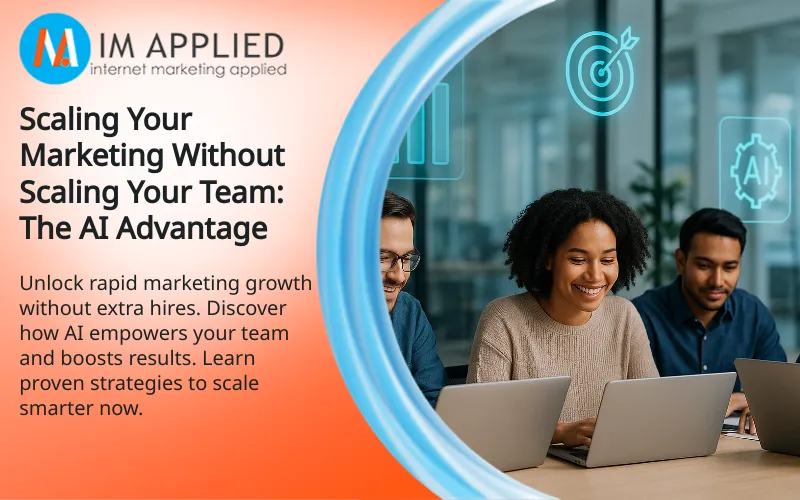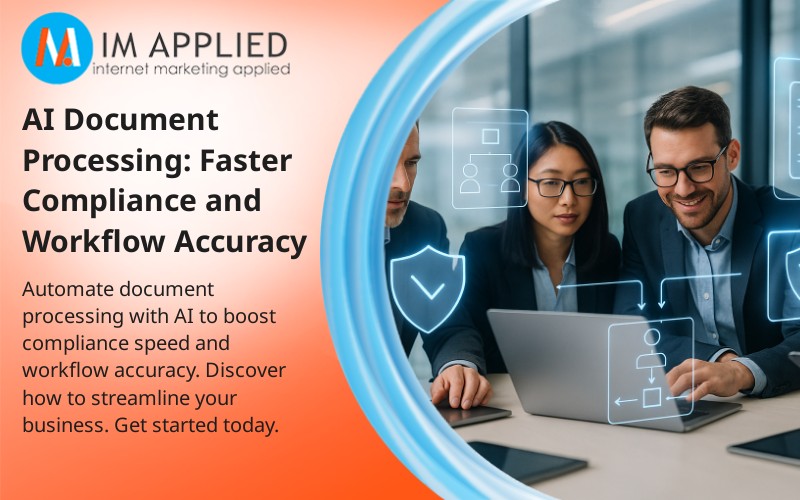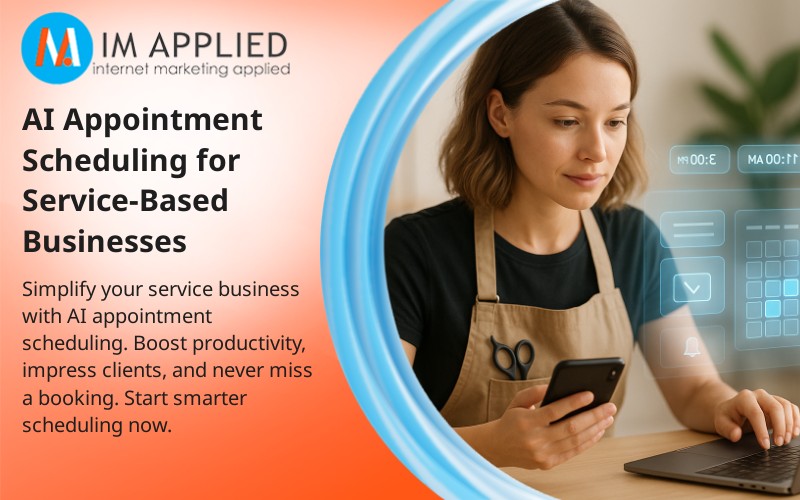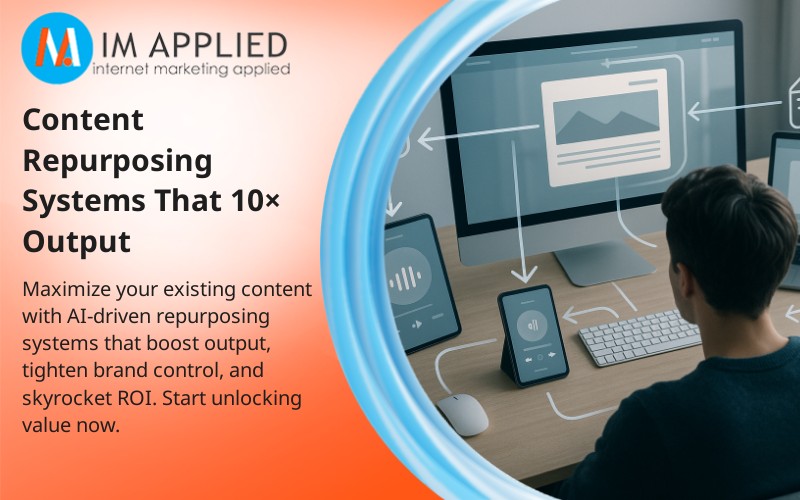Scaling Your Marketing Without Scaling Your Team: The AI Advantage
Karl Marais | 15 July 2025
Scaling your marketing can feel impossible—you’re swamped with tasks, have tight budgets, and an overextended team.
But here’s the good news: AI isn’t about replacing people, but empowering them.
When used right, AI is your secret weapon for exponential growth, without the need for a massive headcount.
The Pitfalls of Traditional Marketing Scaling
Traditional marketing scaling often brings confusion, not just growth.
Many companies assume that increased spending or larger teams guarantee success, but this approach often introduces new bottlenecks.
Using yesterday’s tactics in a rapidly evolving market tends to limit agility and responsiveness, making it tougher to adapt when conditions shift.
As organizations race to keep up with competitors, they may adopt poorly fitting strategies, stretching resources thin and complicating project prioritization.
Without a flexible, tech-driven mindset, businesses struggle to allocate resources efficiently and respond to market changes quickly, highlighting the urgent need for smarter, more adaptive solutions.
Common Marketing Expansion Mistakes
One of the biggest missteps is overexpansion—aiming for new markets too quickly, which can drain budgets and dilute your brand.
Poor resource allocation leads to inconsistent messaging and missed opportunities to connect with audiences.
Sticking to old habits rather than adjusting for what customers now expect invites failure.
To avoid these growth traps, companies should continually reassess their strategies and adopt adaptive, modern approaches, thereby minimizing risk and maximizing results.
Balancing Budget and Growth
Sustainable scaling requires strict attention to budget.
Every investment should stem from a clear analysis of what drives results, rather than just a desire to chase rapid growth.
Modern marketing leaders focus on cost optimization, seeking advanced tools—like AI—that amplify results without inflating expenses.
Wise spending is all about tracking what works, trimming what doesn’t, and investing in initiatives that provide real, long-term value.
The People Problem: Overextending Teams
Scaling without scaling your team’s capacity leads to burnout and low morale. Overloaded staff can’t deliver creative, innovative work.
To keep teams engaged, it’s crucial to avoid endless cycles of high-stress workloads and to invest in tools that automate repetitive tasks.
AI-driven automation, for example, lightens the load while allowing human talent to focus on strategic growth. Learn how AI automation can help.
Embracing AI for Smart Marketing Growth
AI is revolutionizing marketing by bringing smart automation and data-driven decisions to the forefront.
Rather than replacing human ingenuity, AI provides marketers with tools to gain meaningful insights, automate repetitive work, and enable highly targeted campaigns, without ballooning team size.
The result is consistent, personalized engagement across channels, unlocking growth with fewer resources.
How AI Enhances—Not Replaces—Human Talent
AI should be seen as an enhancer.
It takes on deep data analysis, provides predictive insights, and automates mundane work, helping human marketers focus on creativity and complex strategies.
With AI as a partner, teams gain confidence to experiment and grow, expanding possibilities without risking obsolescence or losing the human touch that makes marketing compelling.
Building a Scalable AI-Driven Marketing Strategy
A robust AI marketing strategy begins with centralizing and connecting your data for a holistic customer view.
AI then enables personalized outreach, precise cross-channel marketing, and predictive analytics, allowing you to quickly adapt to market shifts.
By balancing automation and human oversight, you keep campaigns aligned with business goals even as you scale.
For more, review this guide on digital marketing strategy.
Designing Your AI-Integrated Marketing Infrastructure
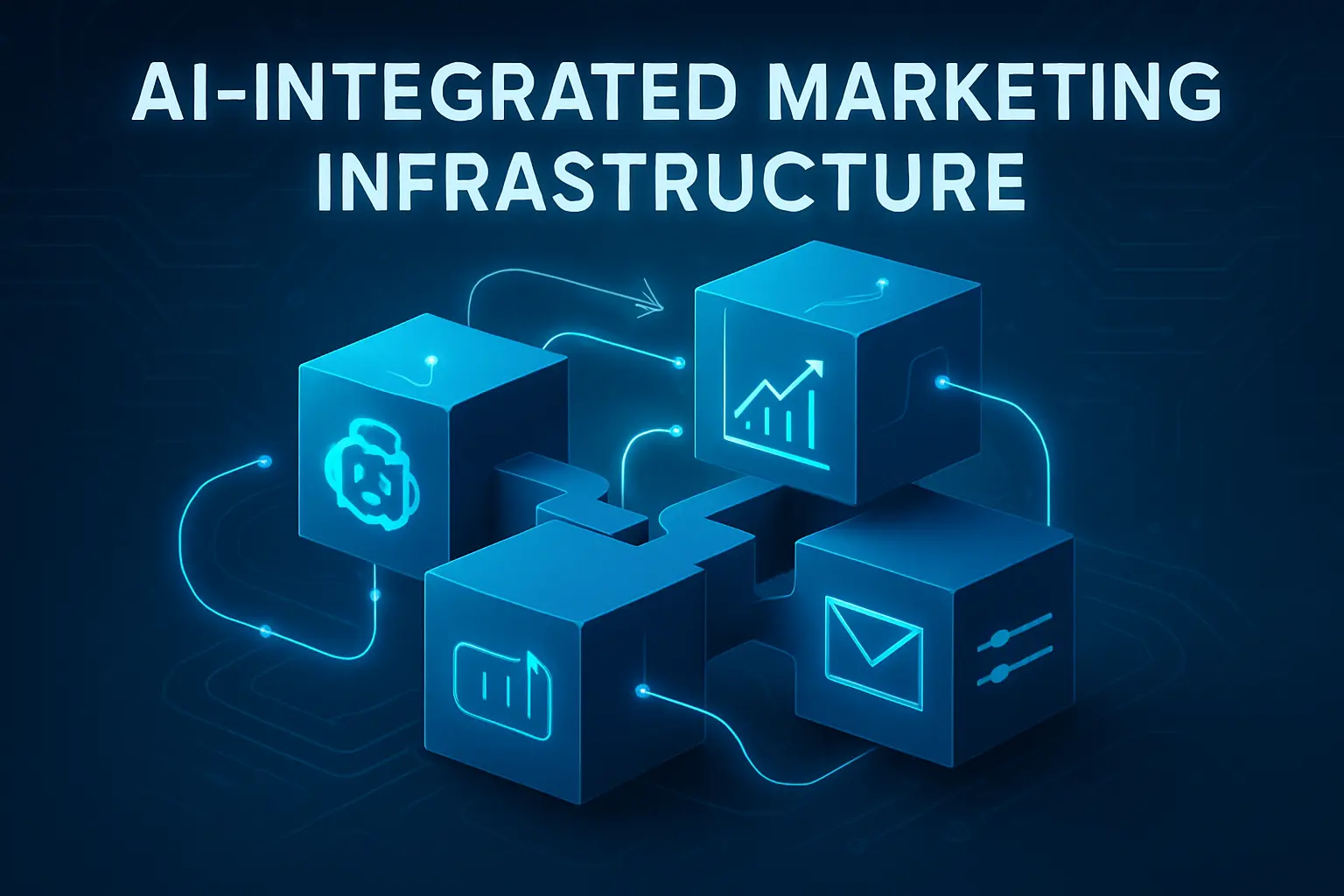
Start by designing an AI marketing infrastructure that fits seamlessly with your existing systems.
Prioritize process automation and effective data management to streamline operations and enhance workflow efficiency.
Centralizing your AI toolset ensures cohesive performance and easier ongoing optimization.
Assessing Current Marketing Processes
Before introducing AI, conduct a thorough marketing process audit to identify inefficiencies and pinpoint areas where automation can have the most significant impact.
This analysis aligns your strategy with business goals and highlights key areas for workflow improvement.
For a step-by-step audit process, explore this SEO audit guide.
Setting Goals and Selecting AI Tools
Clarify your AI implementation goals and define clear KPIs to measure progress.
Select AI tools based on criteria such as functionality, scalability, and ease of integration.
Weigh cost, feature sets, and stakeholder feedback to align your selection with business needs.
Phased Implementation of AI in Marketing
Roll out AI in phases, starting with pilot projects in areas such as customer service or content creation.
These small trials let you test new tools risk-free, gather feedback, and adjust strategies before scaling up.
As AI proves valuable, extend integration across more channels for broader impact.
Ongoing adoption should always be iterative: monitor results, tweak systems based on performance, and encourage staff buy-in.
This structured, measured approach delivers better long-term outcomes.
AI’s Role in Key Marketing Areas

AI isn’t a one-trick pony—it transforms marketing at every level:
- Customer Segmentation & Targeting: Machine learning algorithms sift through data, uncovering patterns and powering deeply targeted, effective campaigns.
- Content Creation: AI-generated copy expedites content production, letting marketers focus on strategy rather than constant writing.
- Social Media Management: AI tools automate scheduling and analyze brand sentiment, keeping your voice consistent and timely.
- Customer Support: AI chatbots and self-service portals provide instant, around-the-clock responses, enhancing the customer experience while reducing staff demand.
To learn how AI is changing SEO, see this resource.
Personalization at Scale
AI elevates marketing by enabling deep personalization.
It adapts content, emails, and ads in real time based on individual behaviors, delivering relevant experiences that drive loyalty and conversions, all while maintaining efficiency.
Data-Driven Decision Making
With AI analytics, you turn raw data into actionable insights—spotting trends, forecasting outcomes, and making smarter marketing bets.
Real-time performance measurement enables you to optimize campaigns quickly for better ROI.
Streamlined Customer Support
AI-powered chatbots and support portals provide customers with immediate assistance, enhance satisfaction, and enable human staff to focus on more complex or high-value issues.
This scalable approach is especially invaluable for small businesses.
The Benefits and Challenges of AI in Marketing
AI delivers clear benefits—increased efficiency, better targeting, and cost savings.
With smart automation, teams work smarter, freeing budget for strategic growth. However, challenges like bias, data privacy, and tool integration do arise.
Addressing these through diverse data sets, strong security protocols, and ongoing training is vital.
For insights into AI ethics and overcoming implementation hurdles, read this detailed guide.
Cost-Efficiency and ROI
AI streamlines marketing spend by automating segments, optimizing campaigns, and delivering real-time analytics for rapid course corrections.
This increases ROI and frees resources for higher-impact initiatives.
Future Trends in AI Marketing
Looking ahead, generative AI and hyper-personalization will continue to transform marketing, from content creation with minimal input to ultra-customized audience experiences.
Predictive analytics and ethical AI will become increasingly important, so it is essential to remain agile and ready to adapt.
Cultivating an AI-Friendly Marketing Team Culture
A successful AI-powered marketing approach starts with the right team mindset.
Encourage ongoing learning, experimentation, and collaboration rather than simply handing teams new tools.
Establish effective change management practices, invest in training, and reward innovative ideas.
Foster continuous learning by providing your team with resources, such as webinars, workshops, or online courses.
Recognize skill enhancements, create open forums for sharing best practices, and encourage experimentation through pilot projects and A/B testing.
An AI-friendly culture fosters teams that are agile, inventive, and invested in growth.
Visit this deep dive on AI in social media management for inspiration.
Final Thoughts on the AI Advantage
AI is transforming marketing—driving efficiency, personalization, and ROI while empowering teams to do more with less.
It’s not just about technology, but about strategic enablement.
Companies adopting AI gain a decisive competitive edge through data-driven insights, automated workflows, and scalable customer engagement.
As AI evolves, emerging trends such as generative tools and predictive analytics will further shape the future of marketing.
By nurturing an AI-centric, adaptive team culture, your business can harness these advancements responsibly and stay ahead of the curve.
Embrace the AI advantage now to drive growth, efficiency, and innovation in your marketing initiatives.

